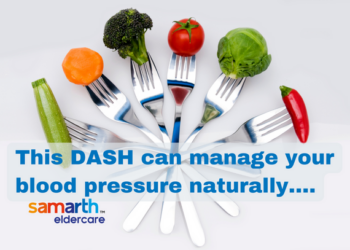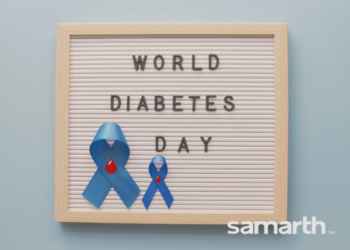In recent times we have had a few young shocking deaths due to heart diseases. When something like that happens, people sit up and take notice and start wondering, why? But after a few days, we get back to our busy lives and carry on as if nothing happened. However, matters of the heart are to be ignored only at great risk. At least, that is what statistics tell us.
Cardiovascular diseases (CVD) contributed to 28.1% of the total deaths in India in 2016. Another alarming statistic is that of coronary artery disease (CAD). 21.4% of diabetics in India have CAD and most of it happens to be in urban areas. The mean age at which Indians get heart attacks is 53 years, which is about ten years younger as compared to developed countries. The elderly and women are said to be at a higher risk of heart disease according to some studies.
Typically, hypertension, diabetes, smoking, and obesity are said to be the risk factors for heart diseases. However, there could well be some other factors at play that may explain the deaths of young, healthy people without habits. Some studies are suggesting genetics as an aspect that could be a cause of concern. Pollution, lifestyle, and mental health are other factors contributing to heart diseases. Let’s take a brief look at the various heart diseases prevalent in India.

Join Now >
Heart Valve issues
You might have heard at least one or two tales about people who went in for regular check-ups and were diagnosed with a heart valve issue. It is indeed possible that we might have some issues and may have been ignoring the symptoms of this condition. The common symptoms are palpitations, breathing difficulty, feeling weak with slight exertion, heaviness in the chest, changes in heartbeats, etc. At times, we may just attribute it to age-related exhaustion and ignore it. Another symptom you can watch out for is gaining weight rapidly. Also, if you notice swelling in the feet or ankles, or constant bloating symptoms, it could be indicative of heart valve diseases.
Coronary artery disease (CAD)
The build-up of plaque in the artery (called atherosclerosis) causes blocks that result in a heart attack. Plaque is a fatty acid, the build-up of which narrows the coronary arteries causing issues. This is commonly called heart disease and at times also referred to as ischemic heart disease. With this issue, people often experience angina or chest pain, which is also the most common symptom of this condition.
Angina could also give pain in the jaw, arm, neck, shoulders, back, etc. Along with pain, angina also gives you some burning sensation and heaviness in the chest. Many a time, people misdiagnose it to be gastric issues due to these common symptoms and delay seeking help, often proving to be fatal. Watch out for faster heartbeats, nausea, sweating, dizziness, palpitations, breathing difficulty, etc. along with angina.
Cardiomyopathy
In this condition, the heart muscles enlarge. The causes vary from hypertension to ischemic heart disease. At times, few treatments like that of cancer may also cause this issue. Fainting sensation and chest pain on exertion are the most common symptoms of cardiomyopathy. Palpitations may also be experienced, even when you are resting.
Heart arrhythmia
Feeling dizzy, pounding in the chest, extreme tiredness, shortness of breath, irregular heartbeats, etc. are the common symptoms of this condition. Atrial fibrillation is a type of heart arrhythmia that makes you feel dizzy with extreme chest discomfort. These are caused by CAD, drug or alcohol abuse, hypertension, smoking or caffeine addiction, etc. Stress and some medications may also cause heart arrhythmias.
Pericarditis
In this condition, people experience a low fever and feel tired with the slightest exertion. Sharp pain in the chest may also be experienced. At times, the pain may also spread to the neck, shoulders, back, arms, etc. Swallowing, coughing, etc, becomes extremely painful in this condition. This condition may be caused by various issues like trauma, heart surgery, infections, auto-immune diseases, cancer, and more.
Diagnosis
To be on the safe side, if you experience the mentioned symptoms, and suspect that it could be something to do with the heart, it is best to immediately seek treatment. Many small clinics too can help you diagnose the issue with simple tests like ECG and ECHO. Detailed tests may also include CT or MRI scans and angiography. At times stress testing is also part of heart health check-ups.
Treatment
Treatments differ from person to person based on the diagnosis. It may include medications and surgery. For example, few people may need to have a pacemaker fitted or a heart transplant even. However, most often lifestyle changes are part of the suggested treatments to maintain a healthy lifestyle. A healthy diet, giving up unhealthy habits, regular exercise, etc., may also be prescribed by the doctor. The key is to follow the advice and go for regular check-ups to ensure that any issue is caught early.
Many of the suggested treatment options are the prevention factors too. Eating healthy, regular exercise, quitting smoking, limiting alcohol, managing stress, sleeping well, regular screening for diabetes and blood pressure, cholesterol, etc. can help prevent heart diseases.











